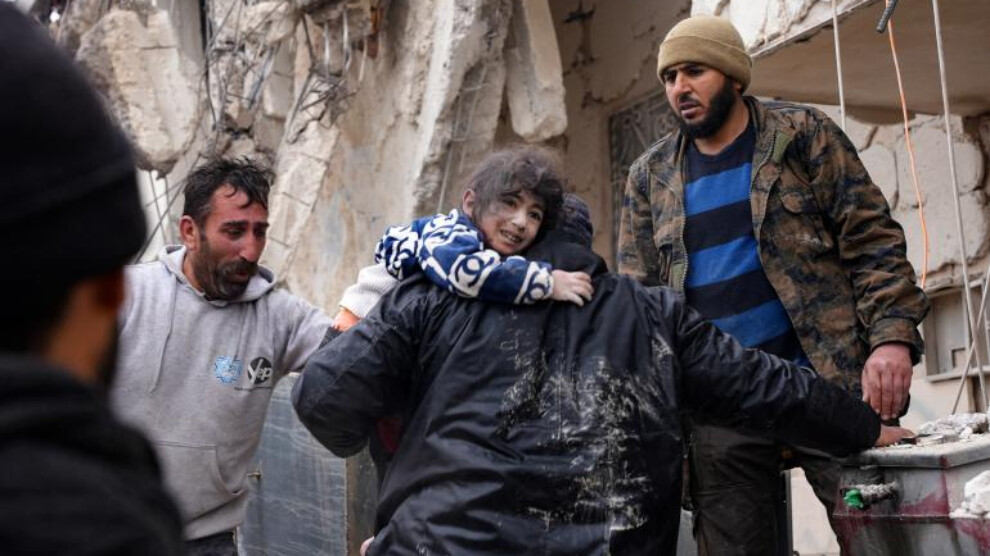UNICEF says Turkey earthquake may have killed thousands of children
Thousands of children and families are at risk after two devastating earthquakes and dozens of aftershocks hit south-east Türkiye and Syria on Monday.
Thousands of children and families are at risk after two devastating earthquakes and dozens of aftershocks hit south-east Türkiye and Syria on Monday.

The United Nations children's agency said on Tuesday that the earthquake and aftershocks that destroyed scores of buildings in Turkey and Syria may have killed thousands of children.
"The earthquakes that hit southern Turkey and northern Syria early yesterday morning may have killed thousands of children," UNICEF spokesperson James Elder told reporters at a briefing in Geneva.
He added the organisation could not determine a specific death toll of children.
Two earthquakes struck Turkey and Syria on 6 February. Millions of people across the region felt the earthquake, including in Lebanon, Israel, Cyprus, and Egypt. Aftershocks were felt throughout the day, including two further earthquakes of 6.5 and 7.5 magnitude.
The initial 7.7 magnitude earthquake on Monday hit just after 04:00 local time, when many children and families were asleep at home, with a second 7.5 magnitude quake hitting later in the day.
Thousands of homes have been destroyed, displacing families and exposing them to the elements at a time of year when temperatures regularly drop below freezing and snow and freezing rain are common. Heavy snowstorms have also recently hit parts of Syria and Turkey, with further sub-zero temperatures forecasted.
“The images we’re seeing out of Syria and Türkiye are heart-wrenching,” said UNICEF Executive Director Catherine Russell on Monday. “That the initial earthquake happened so early in the morning, when many children were fast asleep, made it even more dangerous, and the aftershocks bring continuing risks. Our hearts and thoughts are with the children and families affected, especially those who have lost loved ones or who have been injured. Our immediate priority is to ensure children and families affected receive the support they so desperately need."
Schools, hospitals and other medical and educational facilities have been damaged or destroyed by the quakes, further impacting children. Potential damage to roads and critical infrastructure also complicates search and rescue efforts and the wider humanitarian response.
Children in Syria continue to face one of the most complex humanitarian situations in the world. A worsening economic crisis, continued localized hostilities after more than a decade of grinding conflict, mass displacement and devastated public infrastructure have left two-thirds of the population in need of assistance. Food insecurity, reliance on unreliable and alternative water sources, protection concerns, and high levels of school dropouts are acute.
Waterborne diseases pose another deadly threat to children and families affected. In Syria, a cholera outbreak declared on 10 September 2022 quickly spread across the country, with children especially vulnerable.
UNICEF also called for donations to help them reach the children affected by this disaster.
Title photo: AFP